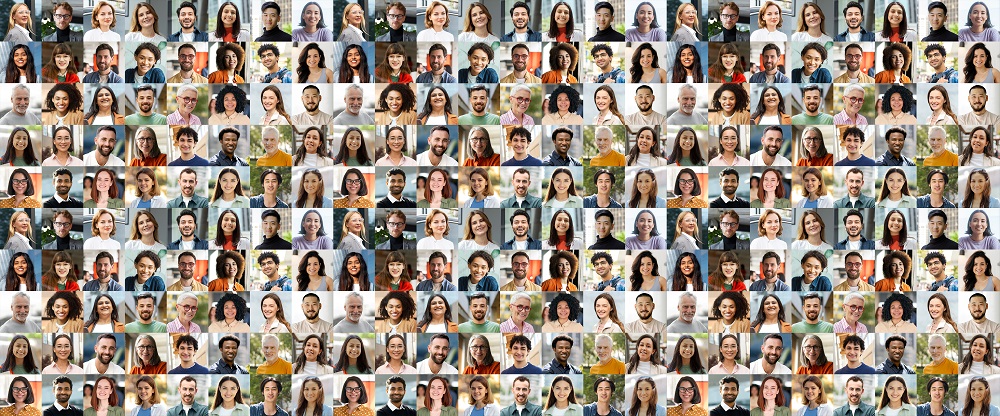At Braver Angels we, and our allies, are building a movement. It is a movement for reconciliation and goodwill in America that responds to the civic ailments and the cancer of animosity that has spread across our land.
The energy of this movement was felt at our national convention, with a passion and creative electricity that inspires us to believe that our small band of patriots and conscientious objectors to the status-quo of polarization really can change the country.
But the energy of this movement is durable by virtue of the structure we build for it. In this sense, the work of Braver Angels is not merely movement building; it is also institution building.
Braver Angels is a community. We are a community within a nation. This great country of more than 330 million people, drawn in their heritage from all corners of the earth, boasts a history rooted in grand idealism and the tragic failings of flawed human-beings.
America’s grand ideals count for nothing if they are not activated through a spirit of community. It is a spirit that can only come through this flawed, cross-racial intersection of humanity we call Americans.
“At the heart of all that civilization has meant and developed is ‘community’ —the mutually cooperative and voluntary venture of man to assume a semblance of responsibility for his brother.”
With the words above (which I quote from a speech entitled The Ethical Demands of Integration) Martin Luther King Jr. offered a vision of democracy resting upon full recognition of human dignity requiring us to be in community with one another. The Nonviolent Movement was a movement for community even as it was a movement for justice. For these two things cannot be long separated if free society is to endure.
Our movement, what we have come to refer to as the Civic Renewal Movement, is itself at heart a movement for community.
Yet ours is a movement that finds its core support not among Americans who agree on the political issues but who disagree on them.
In this it is utterly unique. For what binds us is the goodwill that animated the Nonviolent Movement – not necessarily a consensus on rights and liberties or any other issue set that is usually a requirement for any political movement to get off the ground.
“It is disagreement itself we seek to translate into the stronger bonds of community.“
It is disagreement itself we seek to translate into the stronger bonds of community.
Through “Depolarizing Within” experiences that refresh how we think about each other, “Skills for Bridging the Divide” courses that reset how we speak to each other, “Red/Blue” workshops and “1 to 1 Conversation” models that deepen the way we understand each other, and “Braver Angels Debates” that show us how to argue with each other, we are developing the attitudes, skills and relationships through disagreement itself that we are then able to leverage back out into the landscape of American society in a way that re-humanizes our politics.
As a movement this is novel. Yet there is a type of precedent to be found for the idea of community building through structured disagreement in the very founding of the United States itself.
In American Creation historian Joseph Ellis describes the clash between factions that produced the U.S. Constitution (“nationalists” like George Washington who favored a stronger central government versus “confederationists” likes of Patrick Henry and the most Americans who believed strong government invited the very despotism against which the Revolution was fought).
As Ellis writes, “the argument that triumphed defied logic and the accumulated wisdom of the entire European political tradition, for it made argument itself the answer by creating a framework in which federal and state authority engaged in an ongoing negotiation for supremacy, thereby making the Constitution, like history itself, an argument without end.”
There is no final victory in American life between liberals and conservatives.
Why? Because people are not fundamentally liberals or conservatives. We are neighbors, family, co-workers, and hopefully friends.
The triumph of our movement is not the victory of Republicans over Democrats or vice-versa but the sustained capacity of Republicans, Democrats, and all Americans to live and work alongside each other today, tomorrow, and in the generations to come.
The community we are at Braver Angels, the limbs we have built extending into college campuses; federal, state and local governments; digital media; the world of music; and local communities establishes our ability to sow the seeds of goodwill into the blossoms of better debates, conversations and collaborations across the landscape of American communities and institutions.
It is by energizing our community towards raising up the very institution of Braver Angels itself that we are able to see this work slowly become so many vital threads in the great tapestry of American civic life.
This is what it means to Rise for America: to bring people into a movement that may re-found, in some sense, the civic conscience of America and to build the structures by which we may see this civic renewal unfold.
We are beyond the beginning. But the greater story of Braver Angels is barely starting to be told.
Let us write it as one.




